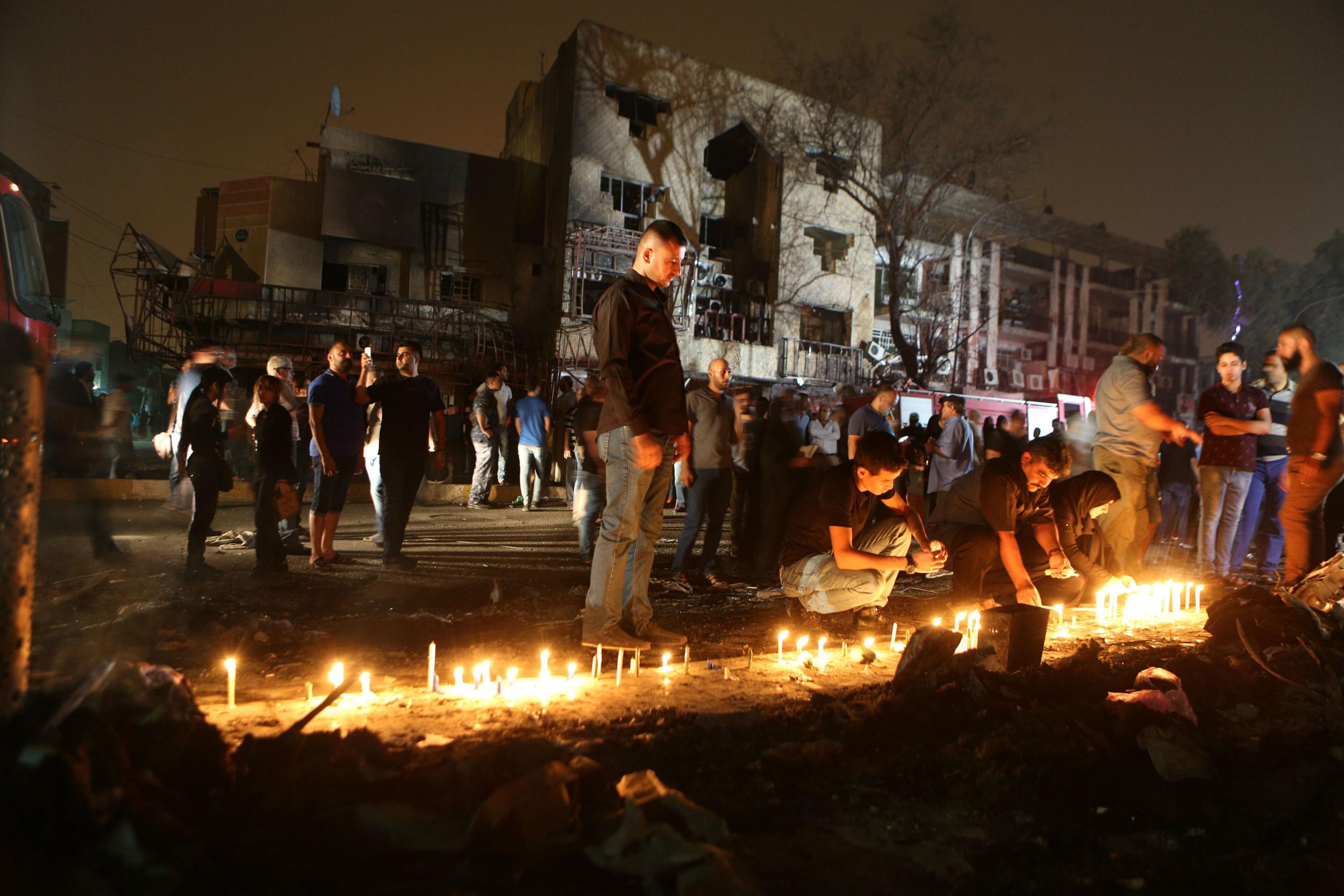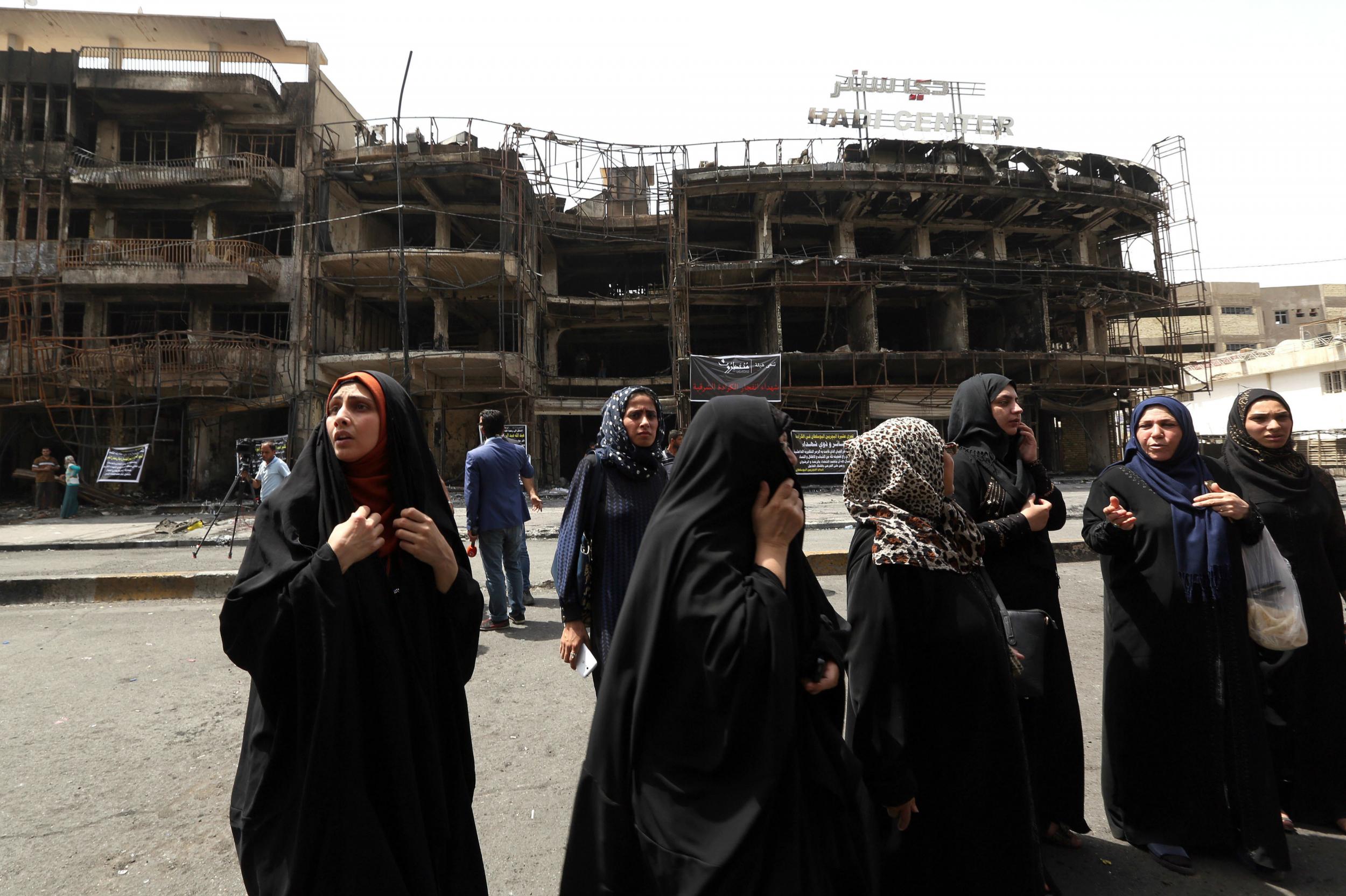Iraq executes five convicted militants as toll from Isis bomb blast reaches 165
The attack in a shopping district was the deadliest for many years

Your support helps us to tell the story
From reproductive rights to climate change to Big Tech, The Independent is on the ground when the story is developing. Whether it's investigating the financials of Elon Musk's pro-Trump PAC or producing our latest documentary, 'The A Word', which shines a light on the American women fighting for reproductive rights, we know how important it is to parse out the facts from the messaging.
At such a critical moment in US history, we need reporters on the ground. Your donation allows us to keep sending journalists to speak to both sides of the story.
The Independent is trusted by Americans across the entire political spectrum. And unlike many other quality news outlets, we choose not to lock Americans out of our reporting and analysis with paywalls. We believe quality journalism should be available to everyone, paid for by those who can afford it.
Your support makes all the difference.The Iraqi authorities have responded to a massive suicide bomb attack by Isis by executing five men it said had been convicted of terrorism.
As the death toll from Sunday’s huge blast in a Baghdad shopping district passed 165, demands grew for the government to take action against Isis sleeper cells blamed for one of the deadliest attacks in many years. Another 220 people were injured in the blast in the city’s Karrada area, and a further 35 people are said to be missing
Isis claimed responsibility for the bombing, its deadliest in Iraq, saying it was a suicide attack. Another explosion struck later the same night, when a roadside bomb blew up in the popular market of al-Shaab, a Shi’ite district in north Baghdad, killing two people.

Reuters said that the Sunday blasts revealed that Isis could still strike in the heart of the Iraqi capital despite recent military losses, undermining Prime Minister Haider al-Abadi’s declaration of victory last month when Iraqi forces dislodged the hardline Isis insurgents from the nearby city of Fallujah.
Mr Abadi’s Shi’ite-led government ordered the offensive on Fallujah in May after a series of deadly bombings in Shi’ite areas of Baghdad that it said originated from the Sunni Muslim city, 30 miles west of the capital.
“Abadi has to have a meeting with the heads of national security, intelligence, the interior ministry and all sides responsible for security and ask them just one question: How can we infiltrate these groups,” said Abdul Kareem Khalaf, a former police Major General who advises the Netherlands-based European Centre for Counterterrorism and Intelligence Studies think tank.
“Isis has supporters or members everywhere - in Baghdad, Basra and Kurdistan. All it takes is for one house to have at least one man and you have a planning base and launch site for attacks of this type.”
In a sign of public outrage at the failure of the security services, Mr Abadi was given an angry reception on Sunday when he toured Karrada, the district where he grew up, with residents throwing stones, empty buckets and even slippers at his convoy in gestures of contempt, Reuters said.
He ordered new measures to protect Baghdad, starting with the withdrawal of fake bomb detectors that police have continued to use despite a scandal that broke out in 2011 about their sale to Iraq under his predecessor, Nuri al-Maliki.
On Monday, Iraq’s Justice Ministry said five convicted militants had been executed in Baghdad.
In February, Amnesty International reported that the number of Iraqis sentenced to death in 2016 came close to 100. The human rights watchdog called it a “grim indicator of the current state of justice in the country”.
Join our commenting forum
Join thought-provoking conversations, follow other Independent readers and see their replies
Comments